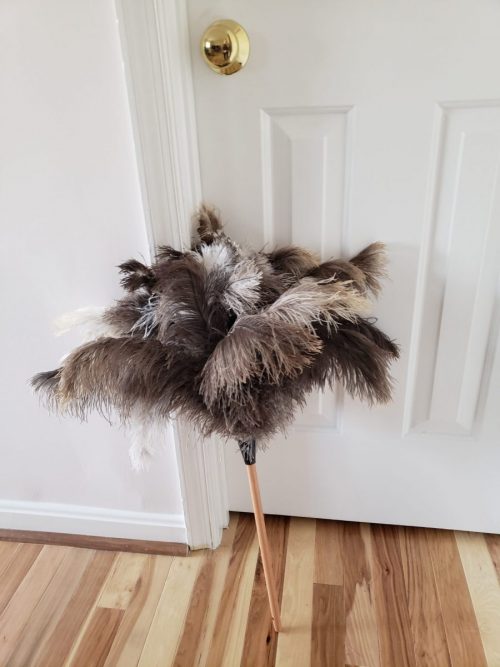In a recent post on this site, I said that if you want to write for publication, you should get in the habit of submitting your work for critique, specifically, to someone (or several someones) with an analytical eye. And I promised to explain more about that in my next blog post. So, here we are.
Many blog posts ago, I told the story (here) of how I discovered my “perfect critique partner,” Annie. She’s had a big head ever since, so I won’t retell that gripping, insightful, entertaining story. But I will go into more detail about what I mean when I say, “Find someone with an analytical eye to critique your writing.” Obviously, the term refers to an ability to see and to analyze a thing. A problem, perhaps. A possibility. A situation. A work of art. An analytical eye can be applied to a movie plot, a machine that isn’t working, or a political argument (not that we have any of those in our current culture). Such a person doesn’t have to be a fellow writer, though it certainly doesn’t hurt if he or she is. It’s not necessarily writing (or even editing) skills you’re searching for, but a way of looking at and evaluating things.
So, if you’re looking for a critique partner (or two or three), here’s a checklist of ten things you might keep in mind. The kind of person you’re looking for is probably:
- Someone who can be objective, separating you from your writing (i.e., not your mom or spouse)
- Someone who isn’t easy (or eager) to please, doesn’t like everything
- Someone who isn’t overly critical, doesn’t hate everything
- Someone who has some familiarity, at least, with your genre
- Someone who knows her own mind, what she likes and dislikes
- Someone who can appropriately and cogently express her likes and dislikes
- Someone who can explain not only that she likes or dislikes something, but also why, sorting and separating good and bad, strong and weak, effective and ineffective, etc. (as opposed to giving a general, blanket approval or disapproval)
- Someone who can set aside her own biases or preferences in order to fairly evaluate something
- Someone who can anticipate how others—especially those unlike herself—might react to something
- Someone who can discern and express how something could be corrected or improved
Did anyone come to mind as you read through the checklist? If so, that might be a person worth approaching about initiating a partnership. If not, you might start praying for God to open your eyes to people around you and perhaps shine a light on those who have an analytical eye.



 How to Write Split Time With Rachel Hauck
How to Write Split Time With Rachel Hauck

I’ve found it’s much more helpful if a critique partner can reliably point out issues but doesn’t feel the need to always offer their idea on how to fix it. In most cases, with critique partners, you have to eat the meat and spit out the bones. But boy, that meat is ridiculously helpful!
It took me several tries to find the right critique group. But God is faithful, and He led me to a prayerful team of women who collectively accomplish everything on your list, Bob. I agree with Brennan: their fixes don’t always work for me, but their suggestions tell me my words didn’t work for them.
Of course, as part of a critique group, I strive to be the honest, helpful person you describe.
A critique partner’s hard to find,
there’s so much he must do,
with sharpen’d eye, warm heart, cool mind,
patient with what I put him through.
He must see my work apart
from who I really am,
and must never fail to start
with positive, uplifting plan.
He must be easy (yes!) to please,
but hard to fully satisfy,
and never indulge in thought-disease
of failing to say why.
He might agree, if I ask real nice,
and so I’ll talk to Jesus Christ.
I personally have never come across anyone who can do all these tasks well. They usually excel in a few but lack in others. As for myself, I consider myself fairly analytical and can separate the author from their writing, who isn’t easy (or eager) to please, know what I like and dislike, can appropriately and cogently express my likes and dislikes, and can explain why I like or dislike something usually, and can usually express how something could be corrected or improved, at least a suggestion. As a book reviewer and beta reader, I’ve learned what to look for and how to explain it.
However, a few authors have said that I’m overly critical (or else they were really looking for “yes”-men). And while I know my own mind, I can’t speak as to how others—especially those unlike myself—might react to something.
It seems like this ideal is a little far-fetched. Or I just haven’t met any of the few who would fit these criteria. Like Elizabeth Bennett, “I rather wonder at you knowing any.”
Bob,
Thank you for this valuable post and your wisdom and insights. I wrote an article about critique groups and how to find one which might help some people at: How to Join a Critique Group
Now is always a great time to reach out and begin the process.
I appreciate a critique partner who isn’t afraid to say what is or isn’t correct or doesn’t bash me when I’m wrong. Since I belong to a couple of critique groups I’ve come to appreciate and look forward to their suggestions. I used church friends a few years ago which wasn’t a good idea. They all loved everything I wrote and I know my writing wasn’t that perfect or great, nor will it ever be “perfect.” They didn’t want to hurt my feelings. As Jerry Jenkins says, we need to develop thick skin if we really want to write well. Hard critiques aren’t always encouraging, but they will help improve our writing. By the way, hard critiques are not to be critical remarks, they are constructive advice.
I am in a Word Weavers critique group and it’s a mixed bag of blessing and learning. Some are more experienced than others at giving helpful critiques. That’s to be expected; we’re all learning together. And it’s humbling to try to give critiques when others are so much better at it. “Um, I liked your story,” sounds a little juvenile when your neighbor goes into great detail.
Just yesterday, in our monthly zoom meeting, they nixed what I thought was a great illustration in a chapter I submitted. Hmm. I thought they would be impressed. Instead, they kindly let me know it didn’t go along with the tenor of the story. Thank the Lord for others’ eyes and minds. “Iron sharpeneth iron.”
This post helps ME to be a better critique partner. I’m very thankful for my critique group that has helped me sharpen my skills.
Great post, Bob. We have some in our critique group that meet these criteria and some who do not. Thanks for this.
I only know one person who fits all of those characteristics…and it’s my husband. But I know from experience that he can and will separate ‘judging my writing’ from ‘judging me’: he’s both my greatest advocate and my harshest critic. So I’d discourage against discounting family members too quickly, though it’s probably true that they’re not usually the best choice.
It is great to have a critique group of four or five with different editing strengths. I love my Word Weavers group. I suggest going online and finding one near you or if there isn’t one, join an online group.
amen. I finally found a group called Scribophile, and tho I post clearly that I write Christian fiction, not a single Christian follows. But with my previous book, I wrote a lot of Scripture. Unaware was I that this message went… around the world. That. Was. Cool. Got a lot of folks that finished from start to finish and watch the transformation of the unlikeable, disbelieving character. It was almost a year later I realized what God had done.
But I got great feedback, questions about everything… & I have no idea how many folks heard the Gospel time and again.
My daughter qualifies on every point in your list. Blessed. And we live together.
I also have a critique group — the Heartland Christian Writers. Grateful.